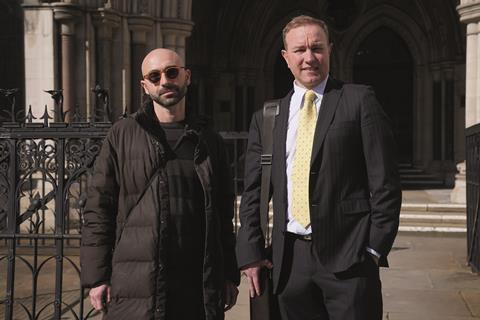A fascinating debate looks set to continue to the Supreme Court after the Court of Appeal dismissed the appeals of former traders Tom Hayes and Carlo Palombo. This case not only places traders back in the spotlight; it also subjects the Court of Appeal itself to scrutiny for the global uncertainty resulting from its judgment and its role as gatekeeper to the Supreme Court.

Background
The background to this case will be familiar to many. Briefly, Hayes, a former securities trader at UBS and Citigroup, was convicted in 2015 for manipulating the London Interbank Offered Rate (LIBOR). Originally sentenced to 14 years in prison, his term was reduced to 11 years on appeal. Palombo, a former Barclays trader, was convicted in 2019 for manipulating the Euro Interbank Offered Rate (EURIBOR), the European equivalent of LIBOR, and sentenced to four years in prison. The appeals of their original convictions were heard in March of this year.
LIBOR and EURIBOR are critical benchmarks that were used to price trillions of dollars of short-term variable-rate credit facilities, such as mortgages, commercial debt and student loans. These rates were supposed to reflect the interest rates at which banks could borrow from each other, calculated daily from submissions by a panel of major banks. Hayes, in his role, was responsible for submitting his bank’s estimated borrowing rates to LIBOR compilers. The Serious Fraud Office prosecuted him for allegedly manipulating these submissions to unfairly influence the LIBOR, thereby gaining a financial advantage for his employer. Despite his appeal, Hayes’ first conviction was upheld.

Criminal case review
The second appeal (after the defendants had served their sentences) was made possible through the intervention of the Criminal Cases Review Commission (CCRC). There had been growing concern that the nine middle-ranking traders, including Hayes, who were jailed for market manipulation, might have been victims of miscarriages of justice. The suspicion gained further credibility in 2022 when a US court overturned the convictions of two other traders and, significantly, dropped charges against Hayes. Consequently, the CCRC undertook a comprehensive review of the cases against Hayes and Palombo.
The CCRC, which steps in when all other appeal options have been exhausted, only considers cases for referral back to the Court of Appeal if new evidence is presented. Merely rehashing existing arguments is insufficient. Central to this review was a decision by the US Court of Appeals for the Second Circuit, which had overturned the wire fraud and conspiracy convictions of two former Deutsche Bank traders. The CCRC ultimately decided that there was a ‘real possibility’ that the Court of Appeal would agree with the US court’s decision and approach to the LIBOR rules.
Specifically, the US court found that LIBOR guidance did not prohibit traders from considering commercial factors in their submissions, directly contradicting the basis of the UK convictions. The Court of Appeal was, therefore, tasked with re-hearing the traders’ appeals.
Appeal
In March, the appellants submitted to the court that:
1. The judge who presided over the initial trial had given ‘extraordinarily unfair’ instructions to the jury regarding the dishonesty of the traders. These traders had factored commercial considerations in to their LIBOR submissions, and the judge reserved the question of what could be taken into account to himself;
2. It should have been for the jury to consider, as a matter of fact, the question of what factors could be taken into account by a trader in making that submission;
3. It was, therefore, for the jury to consider, as a matter of fact, whether it was permissible under the LIBOR rules for the traders to submit a rate which suited their commercial interests;
4. It was permissible as a matter of interpretation of the guidelines to take commercial considerations into account; and
5. Significantly, the US Court of Appeal had considered and dismissed the precise basis for Hayes and Palombo’s conviction, declaring that no crime could conceivably have been committed on facts such as those before the English courts.
Despite the CCRC’s review and the compelling submissions made on behalf of the traders, the Court of Appeal upheld their convictions. It affirmed that the English judges had been right to reserve the interpretation of the LIBOR guidance to themselves and to conclude that accounting for commercial considerations was prohibited.
Comment
While the traders are undoubtedly considering a final appeal to the Supreme Court, it has left time for others to reflect on this significant decision by the Court of Appeal. This ruling has positioned the UK as a lonely island in the LIBOR scandal.
Although the Court of Appeal did not directly address the broader implications in its judgment focusing on whether interpreting LIBOR rules was a matter for the judge or jury – we now see a stark divergence between two of the world’s leading financial centres in their treatment of LIBOR. Remarkably, Hayes is innocent in the US and guilty in the UK for the same alleged offence. The Court of Appeal maintained that the decision of a US court – a jurisdiction similar to ours – did not influence their judgment. However, the real impact on the individuals involved is perceived as uncertainty and injustice. Hayes’ solicitor has pointed out that the UK is now the only country in the world where taking commercial considerations into account regarding LIBOR-setting is a criminal offence.
This issue has sparked calls for the Supreme Court to address what is a clear dichotomy. Whether this will be done by the traders themselves or potentially through an attorney general reference (if deemed sufficiently important and jurisdictionally permissible) remains to be seen. While it is of course accepted that there are differences in the law between the UK and the US, this instance, where the same facts and rules were being considered but have culminated in polar-opposite conclusions, is something of a legal and commercial anomaly.
Another point raised by this case is the legal oddity that, unlike in a civil appeal, an appeal from the criminal Court of Appeal to the Supreme Court requires the grant of permission by the Court of Appeal, certifying that the case involves a point of law of general public importance. This contrasts with civil appeals, where no such gateway exists. The gateway requirement, designed to filter out non-meritorious cases, arguably should be evaluated by the Supreme Court rather than by the judges who have just dismissed an appellant’s case.
This judgment may be considered timely by the Law Commission, which last year published a paper on criminal appeals that included consideration of whether the law satisfactorily enables appropriate appeals to be considered by the Supreme Court. It plans to publish a consultation paper in the autumn and final proposals next year. It will be interesting to see whether reference to this case is made and what recommendations are made on the point.
Finally, if the case does reach the Supreme Court, the traders may not be comforted by the fact that there are currently no Supreme Court justices with a criminal justice background. A possible reform that has been mooted by a number of commentators is to introduce a requirement for one permanent justice of the Supreme Court to have a background in criminal law. In Chandler (Appellant) v The State (Respondent) No 2 (Trinidad and Tobago), heard by the Judicial Committee of the Privy Council in November 2021, a similar issue arose. Lord Hughes was brought out of retirement to sit on a nine-person panel to ensure there was criminal representation. Hayes and Palombo may be well advised to consider this precedent.
Caroline Greenwell is a partner at Charles Russell Speechlys, London































1 Reader's comment